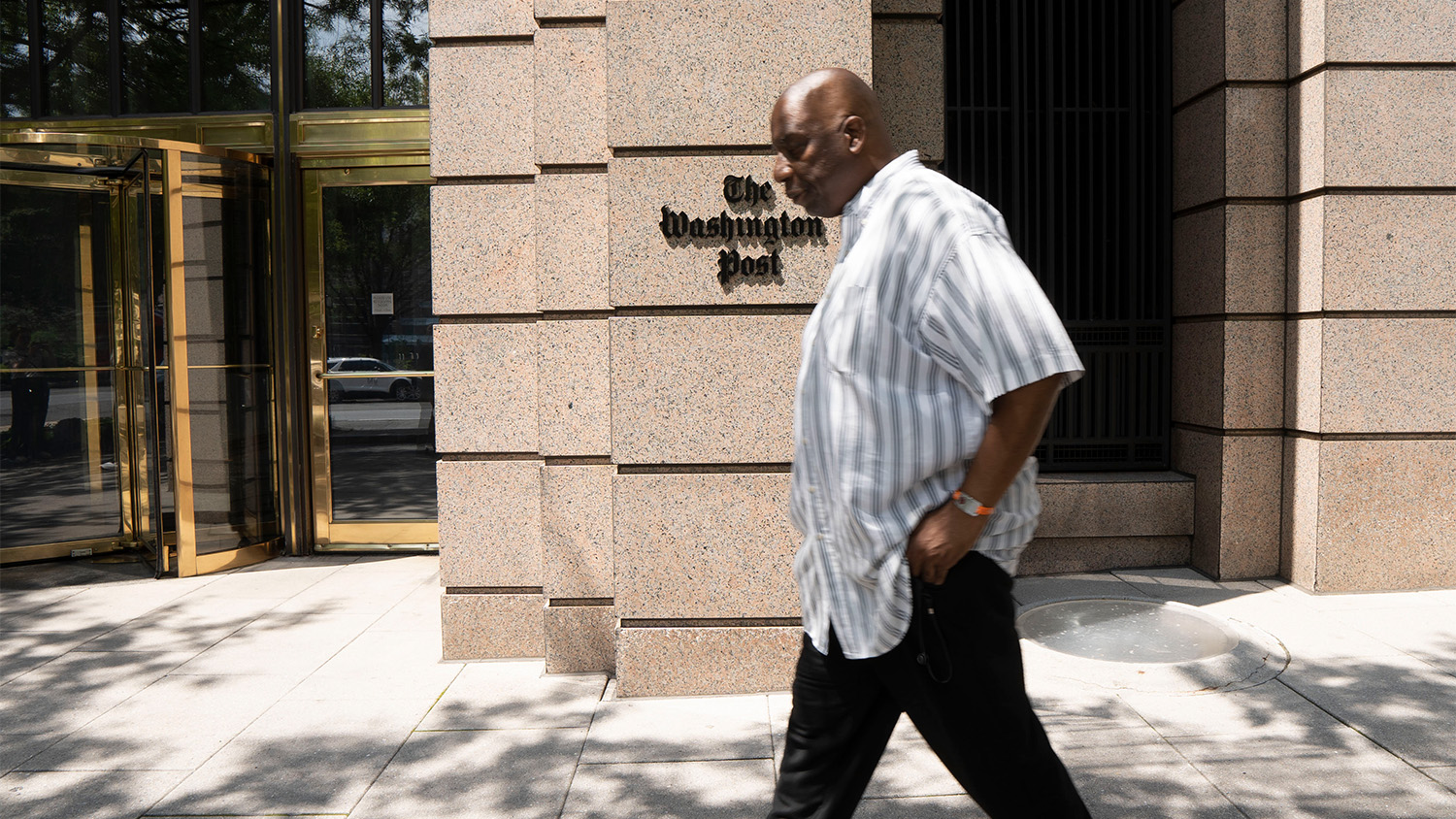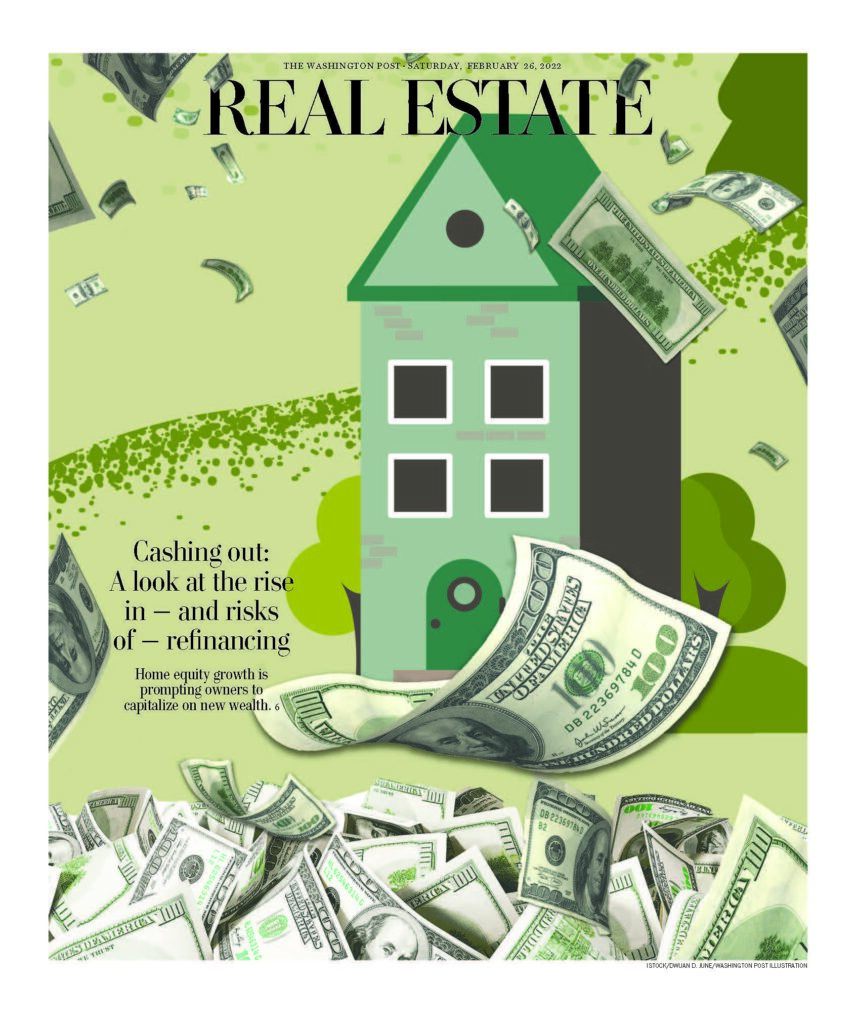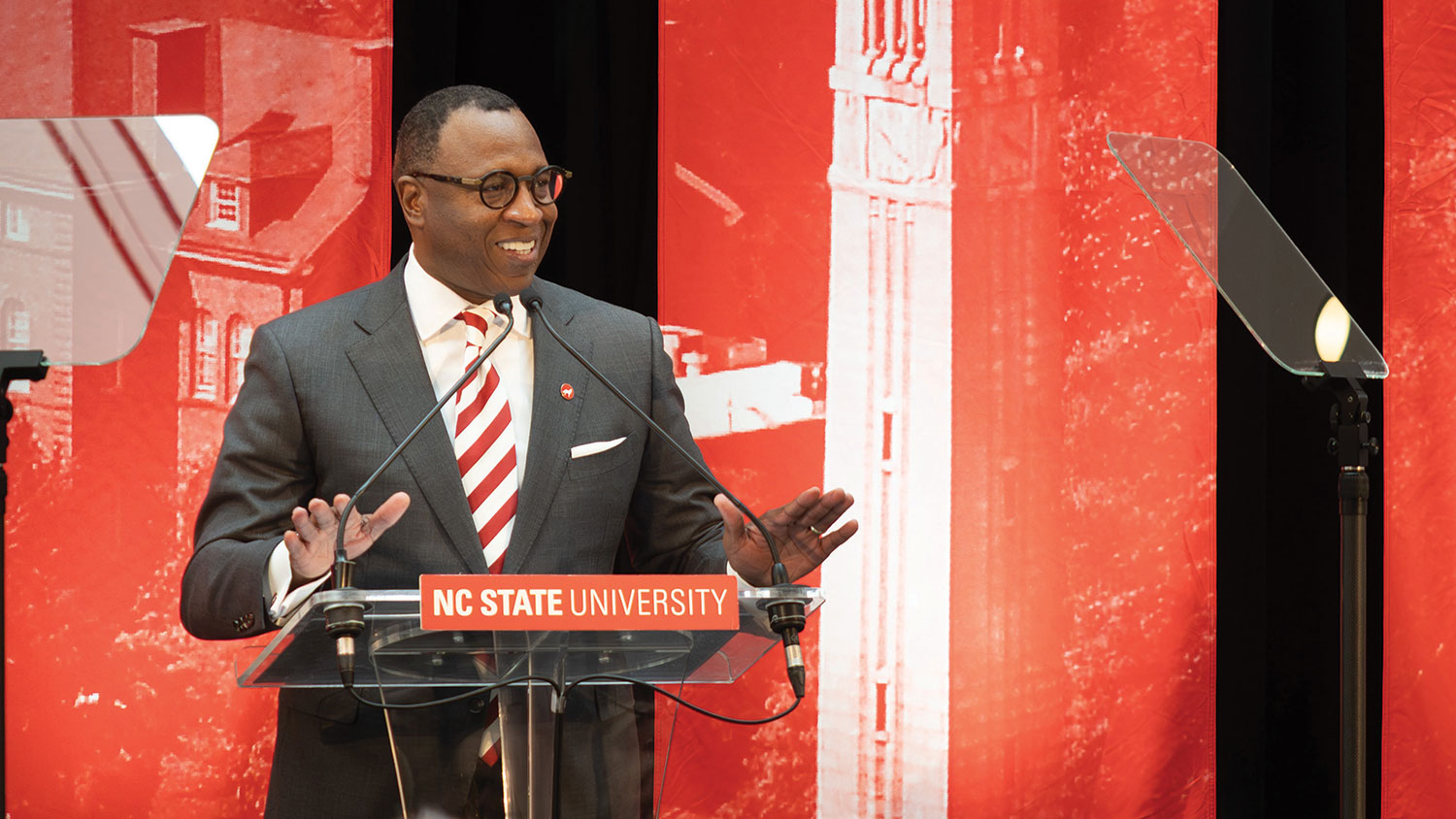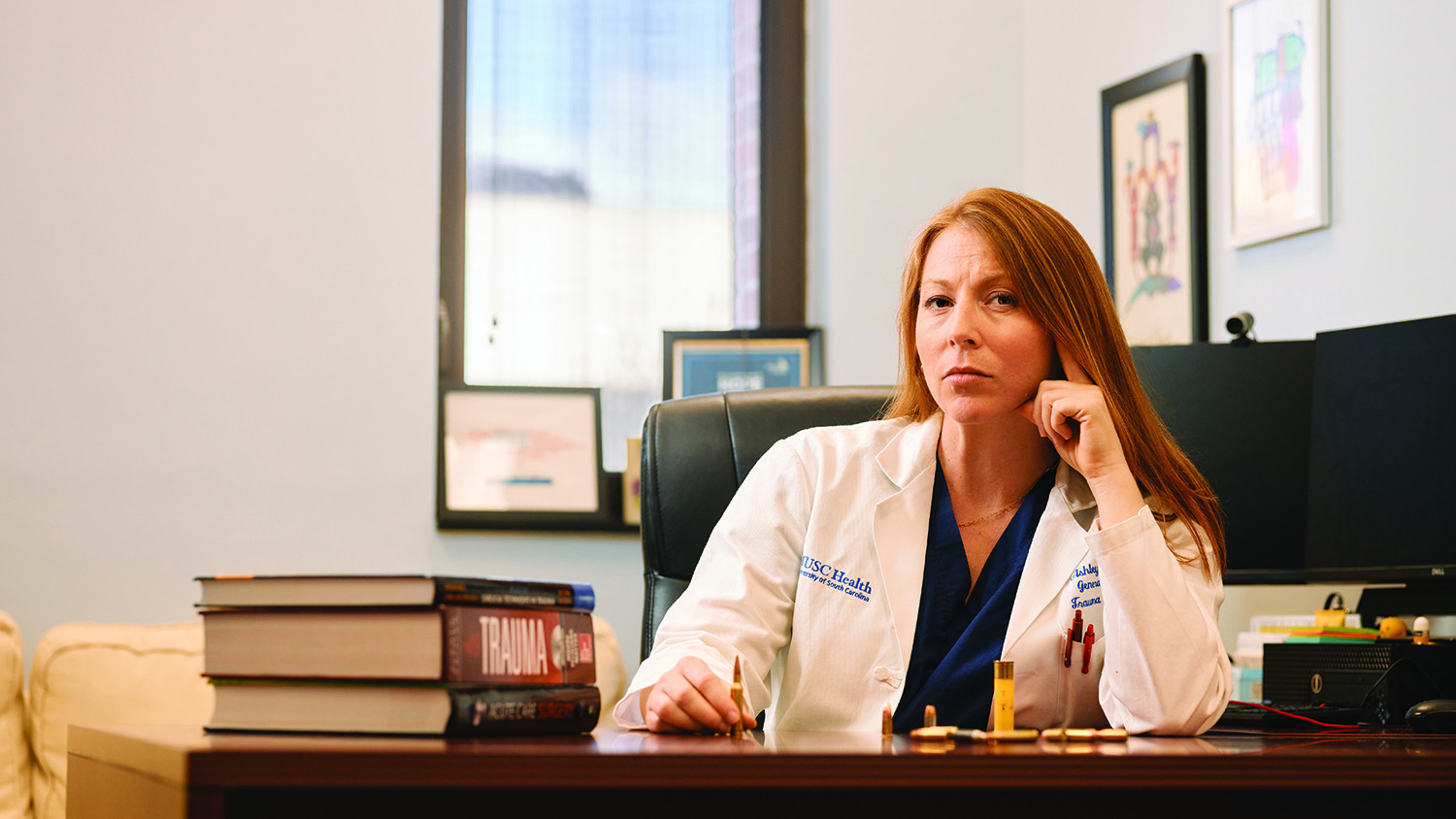Beyond the Story
Alum Dwuan June’s Newspaper Career Illustrates Passion for the Art of Storytelling

Growing up, NC State English alumnus Dwuan June had three career aspirations: Become a comedian, a referee for the NFL or a journalist.
The 1990 graduate chose journalism and never looked back.
He has spent his 33-year and counting career immersed in the newspaper world, briefly as a reporter but mainly as an art director and assistant news editor. Since 2001, he worked in those roles for various sections at The Washington Post.
“I love it,” June says of his profession and reason for remaining in an industry that has changed tremendously in the past few decades.
“I believe in journalism’s cause, which is to be a sort of backstop for anything that affects the average person,” he notes. “If there’s information that needs to get out or a story that needs to be told, right or wrong, that’s what I’m into. So at the end of the day, I can say, OK, I did my part.”
The secret to June’s longevity is adaptability. He stays with or ahead of industry trends and takes classes or teaches himself to become proficient at them.
In his current role at The Washington Post, June oversees the visual style of the front section of the paper’s weekend editions and other departments, including special sections and projects. Among his responsibilities are choosing (with other editors) the stories to go on the front and inside pages and which photos, illustrations and graphics to use.

“I make it easier for the reader to visualize and understand the story,” he explains. “The challenge is figuring out what readers want to read and see because there’s so much information out there and making our product a viable fit for the many different media platforms today.”
June’s love affair with journalism started when he was a kid and continued through middle school, high school and college. He worked at each school’s newspaper and became the first African American editor-in-chief of Technician at NC State. His college experience led to newspaper internships and his professional career.
His time as a reporter, however, was short-lived. He says the turning point came when he was an intern at the Fayetteville Times. He interviewed the grieving mother and boyfriend of a missing girl who June later discovered was killed by her boyfriend. After that assignment, June questioned whether he had the mindset or personality to write those types of stories.
“There are many different things to do in journalism, so I got more into design and graphics,” he says.
June describes his career path: “My main goal was to work at the Observer, my hometown paper. But I’ve been fortunate to move from that paper to a bigger paper, to the Post, as the industry has changed, and so many people have lost their jobs, and papers have closed.”
What’s it like to work at a leading paper in the nation’s political center? As an answer, June talks about taking calls from the CIA director or spotting celebrities — like Brad Pitt, Jane Fonda and the late Kobe Bryant — in the newsroom.
He says working there also opened up unanticipated opportunities. Among them was a stint as an adjunct professor at the University of Maryland and as a guest speaker at Howard and Syracuse universities.
June also enjoyed his time at NC State, which he describes as feeling like home and his professors, advisors and coaches who were like family. He counts the late Coach Kay Yow, Dwayne Walls (advisor to the student newspaper), and retired English professor Robert Kochersberger among the most inspirational and encouraging.
He attributes the skills he learned in the classroom and at Technician as preparing him for his future and helping him land his newspaper jobs.
“I believe in journalism’s cause, which is to be a sort of backstop for anything that affects the average person.”
“The Technician was my laboratory, my learning curve,” he says. His goal, June adds, was to become editor-in-chief and elevate the paper.
“We left Technician in a much better journalistic spot than when we took it over,” he notes.
Personally, he says he learned to work as a team with people with different perspectives and manage disagreements. He says he also “met four lifelong buddies” working at Technician.
As for his advice to students thinking of entering the journalism and design fields, June says:
“I would tell them to love what they do and that today there are many career options — social media specialist, videographer, international correspondent. You can pick your lane. But be patient, don’t give up and just keep on truckin’.”
- Categories:


